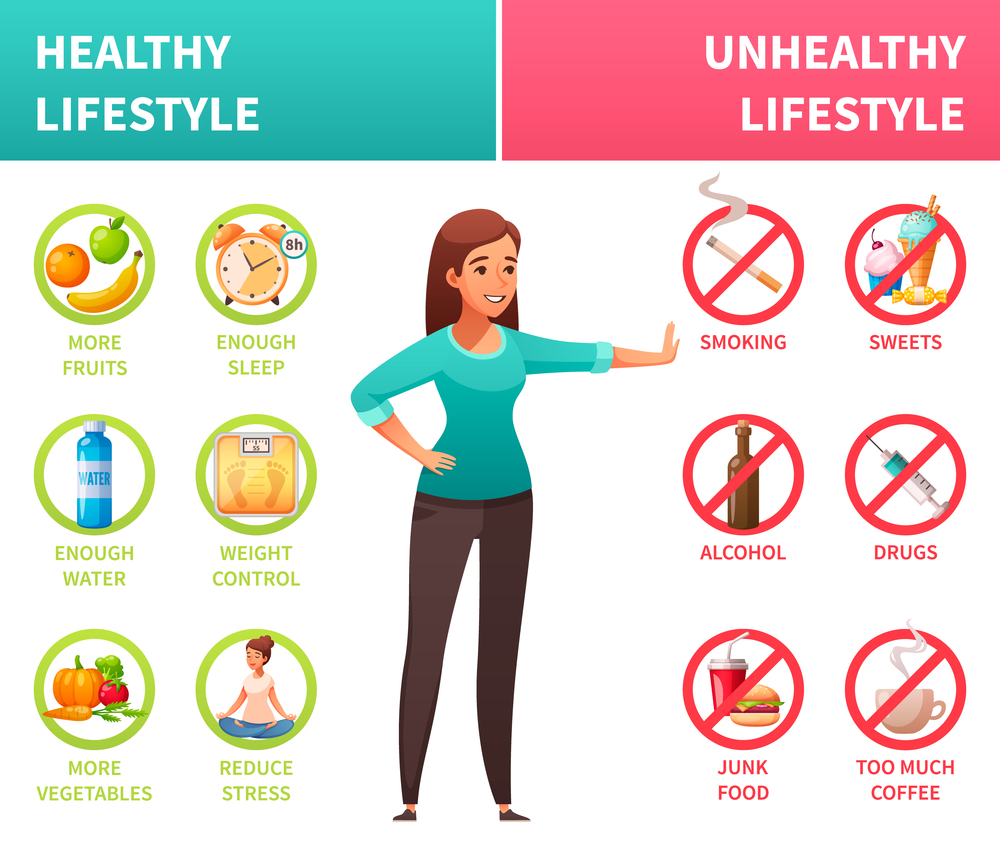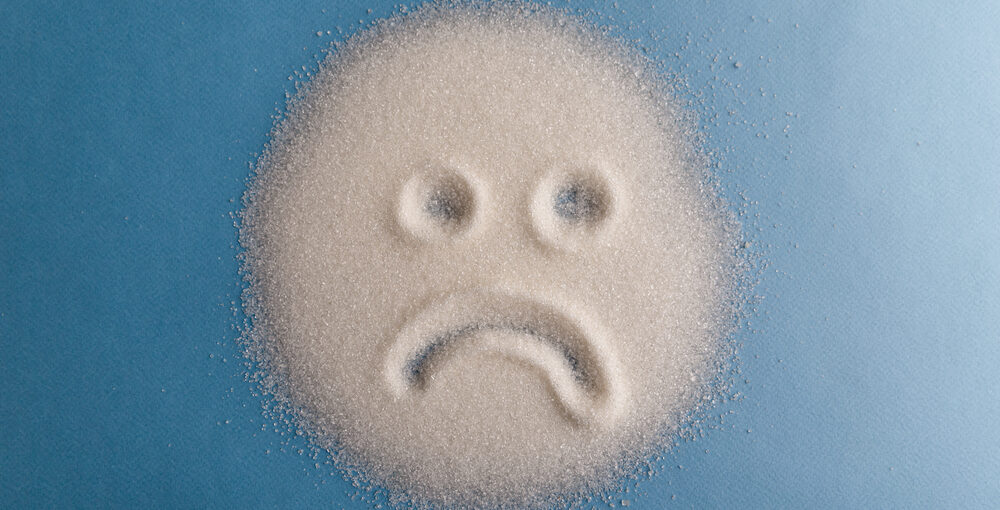Ever wonder how sugar affects your mental health? Do you ever feel like you can’t function without a sugary treat? Do you turn to candy or soda for a quick pick-me-up during a stressful day? I know I did. Unfortunately, while sugar may temporarily boost energy, it could do more harm than good to your mental health.
Recent studies that I found have shown excessive sugar consumption can negatively affect mood and cognitive function. From anxiety and depression to memory problems and brain fog, the impact of sugar on mental health is significant and real. It was something I struggled with and until I understood the connection I eliminated the extra sugar from my diet. The results were defining for me and I now I talk about it as much as possible.
This article will examine how sugar affects the brain and explore ways to reduce sugar intake for better mental health.
How does sugar affect mental health?

Sugar affects mental health in various ways, both direct and indirect. It has an immediate impact on your blood sugar levels, which can have a knock-on effect on your physical and psychological well-being. Too much sugar leads to a rapid rise in blood glucose, followed by an equally quick drop that results in fatigue, irritability, and mood swings. Eating sugary foods also increases your risk of depression and anxiety while reducing the effectiveness of antidepressant medication.
There is also evidence that high sugar consumption can increase the risk of heart disease, stroke, and other chronic diseases. PubMed This means that people who eat many sugary foods are more likely to suffer from physical health problems that could worsen their mental health.
What are the risks associated with a high-sugar diet?
A high-sugar diet has several associated risks, including:
- High Blood Sugar
- High Blood Pressure
- Increased risk of Type 2 diabetes
- Poor Dental Health
- Anxiety and Depression
- Panic Attacks
Sugar and mental health: Risk Factors for Depression.

Recent studies have revealed a strong relationship between the amount of sugar an individual consumes and their risk for developing depression. For example, according to the Whitehall II study, individuals who consumed an average of 67 grams or more of sugar per day had a 23% higher risk of depression than those who drank no more than 40 grams per day. Other studies have found similar results linking sugar consumption to depression.
Additionally, sugary foods are low in essential nutrients such as B vitamins and magnesium, which are critical in supporting mental health. Therefore, limiting refined sugars and focusing on consuming natural sugars found in fruits and vegetables can help reduce the risk factors for depression and improve mental well-being.
Although it is important to note that correlation does not necessarily mean causation, it is nevertheless essential to be mindful when monitoring our dietary intake of sugars. A balanced diet with minimal processed sugary foods is necessary to maintain healthy mental health.
Did you know: Taking a Cold Plunge can help your with mental health: 5 Health Benefits
Sugar and mental health: Panic Attacks & Sugar Diets
According to the NIH Publication, Sugar has long been linked to physical health issues such as heart disease and high blood pressure, but did you know it can also have a powerful impact on mental health? For example, overeating sugar can increase your risk of developing panic attacks. This is because sugar consumption can cause sudden changes in blood sugar levels, leading to feelings of anxiety. Furthermore, a sugar diet lacking essential nutrients can create a lack of balance in the body and mind, causing other mental health symptoms such as depression and fatigue. Additionally, studies have found a direct relationship between mood disturbances and the number of sugars consumed.
To reduce your risk for panic attacks and mental disorders, it is essential to focus on consuming natural sugars in fresh fruits and vegetables or sweet potatoes. It’s also recommended to follow a glycemic index diet that moderates the amounts of sugars eaten throughout the day. By monitoring your dietary intake of sugars and focusing on nutrient-rich foods like fruits and vegetables, you can maintain healthy mental health while reducing your risk of developing panic attacks or other chronic diseases associated with high sugar consumption.
Sugar and mental health: Heart Disease & Blood Pressure Related to Sugary Foods
High sugar consumption is linked to various health issues, including heart disease and high blood pressure, according to a publication listed in the NIH. Overeating sweet food can cause an increase in LDL cholesterol levels, leading to the buildup of plaque in your arteries and an increased risk of a heart attack. Furthermore, studies have found that those who consume high amounts of sugar are more likely to suffer from hypertension and other cardiovascular diseases.
In addition to the risks associated with fatty and sugary foods, consuming too much-refined sugar can also cause imbalances in blood glucose levels. This can lead to dizziness, fatigue, headaches, and even blurred vision. Furthermore, if left unchecked, this could result in diabetes or other metabolic problems.
Try opting for healthier alternatives such as fruits or whole grains whenever possible. Also, please remember that you should get regular check-ups with your doctor. They can monitor changes in your blood pressure or cholesterol levels as you adjust your diet. By taking these steps, you can keep heart disease at bay while enjoying sweet treats now and then!
What are the long-term impacts of not overeating sugar?
In contrast, studies have found that people who follow a low-sugar or glycemic index diet are less likely to experience mental health symptoms. This is because these diets help keep blood sugars stable throughout the day and avoid sudden spikes or drops in energy levels that can trigger panic attacks and other issues. It’s important to note that while consuming small amounts of natural sugars such as those found in sweet potatoes and fruits are recommended, refined sugars should be limited as much as possible.

Check out these helpful Meal Planning resources from the CDC:
- Diabetes Meal Planning
- Video: Healthy Eating
- More About Meal Planning
- Weekly Meal Planner [PDF – 30 KB]
- Diabetes Food Hub – Recipes for Healthy Living (ADA)
- Tasty Recipes for People with Diabetes and Their Families [PDF – 9 MB]
- Rethink Your Drink
- Recipes for a Heart-Healthy Lifestyle
In conclusion, sugar can majorly impact our mental health. From mood swings to anxiety and depression, the effects of sugar on our brains are not to be underestimated. But the good news is that by cutting back on sugar and making healthier choices, we can take control of our mental health and feel better than ever before. So why not start today? Your brain (and your body) will thank you for it!
Wrap Up
Read MY STORY on how I was fat and unmotivated, turned my life around, and stopped eating ultra-processed foods. I will tell you what I did to start the process of losing weight, exercising, and eating right. I am a regular guy who was able to change his life around, and you can too. Also, check out Stop the Global Fast Food Insanity! – FAT FIT FREE , Losing weight with psychedelic mushrooms! and How Exercise Improves Your Mental Health– FAT FIT FREE
Check out my latest post:

